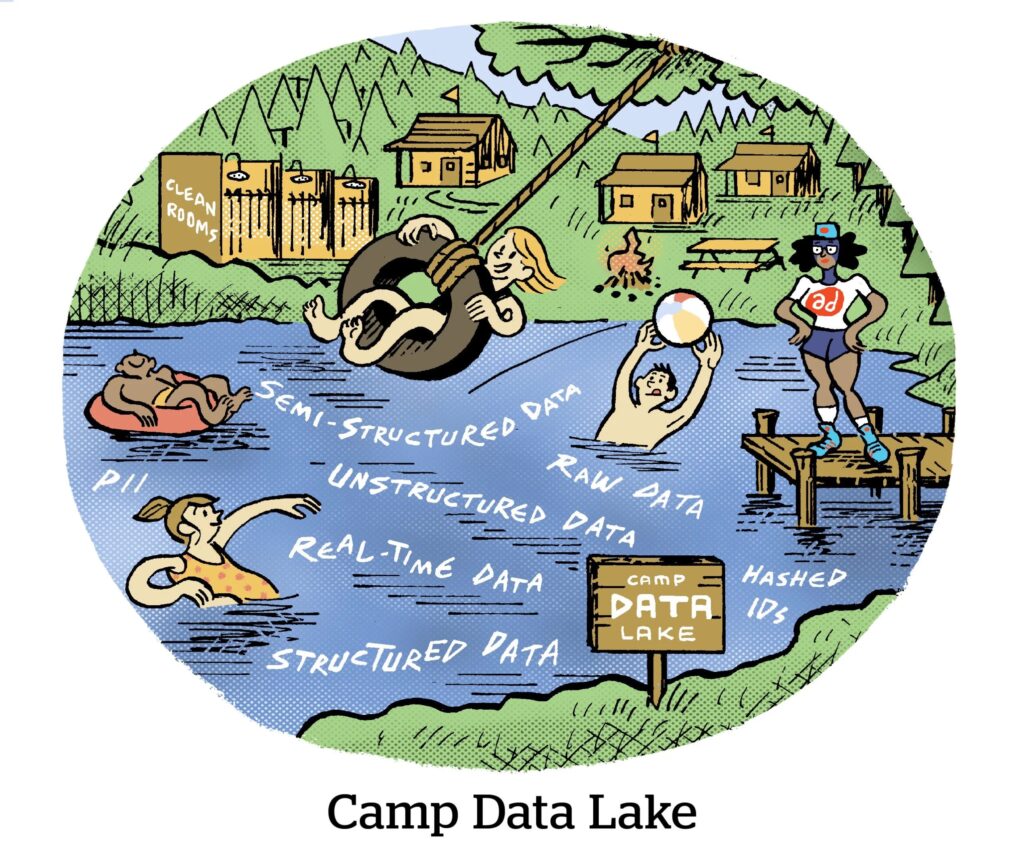Like kids at Christmas time, digital publishers dread ending up on the naughty list.
Publishers can be flagged for any number of issues, including media quality, brand safety and keyword blocklisting. And vendors sell lists of made-for-advertising (MFA) sites or other sub-par domains based on factors like poor data hygiene or overlapping, constantly refreshing ad units. Publishers are also scored on their media quality, with some programmatic solutions excluding sites that score poorly from campaigns or curated private marketplaces (PMPs).
Typically, publishers have no idea when they’re added to one of these blocklists, and they usually can’t see their own scores – unless they pay the vendors. But the Brand Safety Institute (BSI) launched a free dashboard on its site in March that allows publishers to see how they’ve been evaluated by participating vendors.
On Thursday, the BSI announced that it’s expanding the dashboard to include new media quality assessments beyond its initial focus on MFA blocklists.
New to the program is Compliant, which provides visibility into its Data Integrity Index (formerly known as the Publisher Compliance Index).
The index scores publishers on a 100-point scale based on their data privacy practices and compliance. It considers publishers’ consent management, data hygiene, how many vendor tags are active on their sites and how effectively they prevent data exposure for users. It also weighs whether publishers work with data brokers and resellers, and whether they share user data across borders (i.e., between Europe and the US). Compliant claims to assess 96% of US publishers and 92% of sites globally.
So far, about 30 publishers representing 1,500 domains have actually signed up to use the BSI’s dashboard. And the BSI plans to add more participating vendors in the coming months.
“In a landscape where consumer trust is increasingly fragile, and data privacy regulations are becoming more stringent, it’s no longer optional to have a firm grasp on data practices,” said Kevin Freemore, SVP of media, technology and data at the 4A’s. “Publishers need to be able to demonstrate their commitment to ethical data handling, and actionable metrics are the key to doing so.”
In addition to Compliant making its index available to publishers, Jounce Media, which already provided the BSI access to its MFA assessments, is now also providing visibility into its Cheap Reach and Untrusted media scoring.
Jounce’s Cheap Reach metric assigns publishers a risk score based on their inventory’s viewability. Publishers can be dinged for carrying a heavy ad load or less-than-ideal placements. And the Untrusted metric weighs whether sites have been flagged for copyright infringement, illicit content or misrepresented inventory. These metrics, alongside Jounce’s MFA assessment, factor into its overall “media risk” scoring, which is on a 0%-100% scale.
Transparency breeds quality
For Compliant, a data compliance tech vendor, media quality assessments are about helping buyers target high-quality inventory, not about punishing publishers, said co-founder and CEO Jamie Barnard. He said that participating in the BSI’s publisher transparency initiative can help ad buyers and publishers mitigate the race to the bottom that spoils the open internet.
“We approach this as: How should media buyers search for quality as we shift away from years of looking at terrible metrics, like click-through rates and CPMs, which have taken us to where we are now?” he said.
To that end, Compliant has embraced the curation trend and works with DSPs and SSPs to offer curated PMPs based on Data Integrity Index scores. But, Barnard said, while that helps buyers, there could be unintended consequences for legitimate publishers.
“We want to do the right thing,” he said “but you do not want to be doing the right thing if it means you cut off money.”
Publishers are also in a tight spot, he said. Many have seen referral traffic downturns and ad revenue losses. So more publisher execs are open to monetizing their user data just to have a fighting chance.
“I’m not blaming anyone, but the way most publishers monetize data today, let’s say, is problematic,” he said. “I use my words diplomatically, because they’re not bad people; it’s just because of the way things are.”















